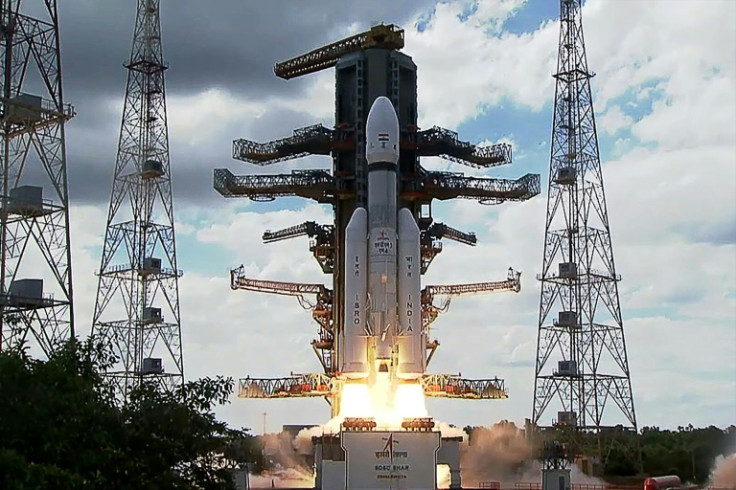Chandrayaan-3 Marks New Era In Lunar Exploration With Super Powers Eyeing Moon's Resources

KEY POINTS
- Chandrayaan-3 successfully landed in the little-explored south pole of the moon
- The lunar south pole has been of great interest in the world's quest to find water on the moon
- The discovery of water sources could further open up avenues in finding minerals and resources on celestial bodies
Waves of excitement spread across the world as Chandrayaan-3 successfully touched down Wednesday to make India the first nation to achieve a soft landing on the lunar south pole and the fourth to land anywhere on the moon.
In addition to being a great technical feat, the landing of Chandrayaan-3 by the Indian Space Research Organization (ISRO) has paved the way for a new era of lunar exploration, and could further open up avenues for humankind to finally reach extraterrestrial resources that are waiting to be discovered in the solar system.
The race between Russia's Luna-25 and the Chandrayaan-3 marked "a new era of lunar exploration, in which nations such as the U.S. and China, as well as private companies, have their sights set on resources on the Moon," Theodora Ogden, Analyst at RAND Europe, told International Business Times.
The lunar south pole has been of great interest to the world after a NASA instrument on board ISRO's Chandrayaan-1 probe detected water on the moon's surface in 2009. Other missions have also revealed the presence of permanently dark craters in this region of the moon, suggesting the existence of water.
The Chandrayaan-3 mission aims to find insights into lunar water exploration because water could possibly support human habitation on the moon in the future. Furthermore, water could also help in cooling equipment in other missions that involve spacecraft heading to Mars or other distant destinations.
This new era of lunar exploration could also flag off a new space race for the lunar mining of resources as well as extraterrestrial resources beyond the moon.
Namrata Goswami, the author of "Scramble for the Skies: The Great Power Competition to Control the Resources of Outer Space," told IBT that resources like titanium, platinum, silicon, iron ore and magnesium could someday be extracted from the moon and trigger a shift in the world order.
"If extracted, this has enormous implications for political power," Goswami said. "Economically, space resources offer a billion-fold the resources on Earth, and thus the ability to shape a new world order. Ideologically, space is a canvas and theater in which to execute grand strategy, and provide a wealth-generating platform that draws in partners and allies."
© Copyright IBTimes 2025. All rights reserved.






















